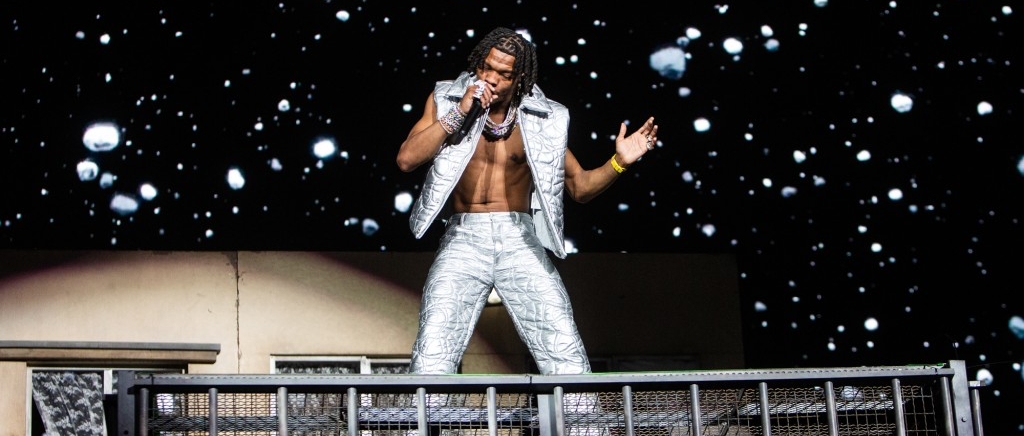
With the Coachella Valley Music and Arts Festival returning for the first time in three years, it looks like the organizers’ have adjusted their hip-hop strategy. While in past years, the festival has gambled a bit more on rising stars in the genre like Aminé and Dej Loaf, this year, the focus shifted to providing more established stars like City Girls, Cordae, and Lil Baby.
This isn’t a bad thing at all, though. While day one of the 2022 Coachella Festival only sported a handful of rap acts, by honing in on more proven quantities, the festival offered an excellent cross-section of samples of where the genre currently is, with one or two glimpses at where it could be going.
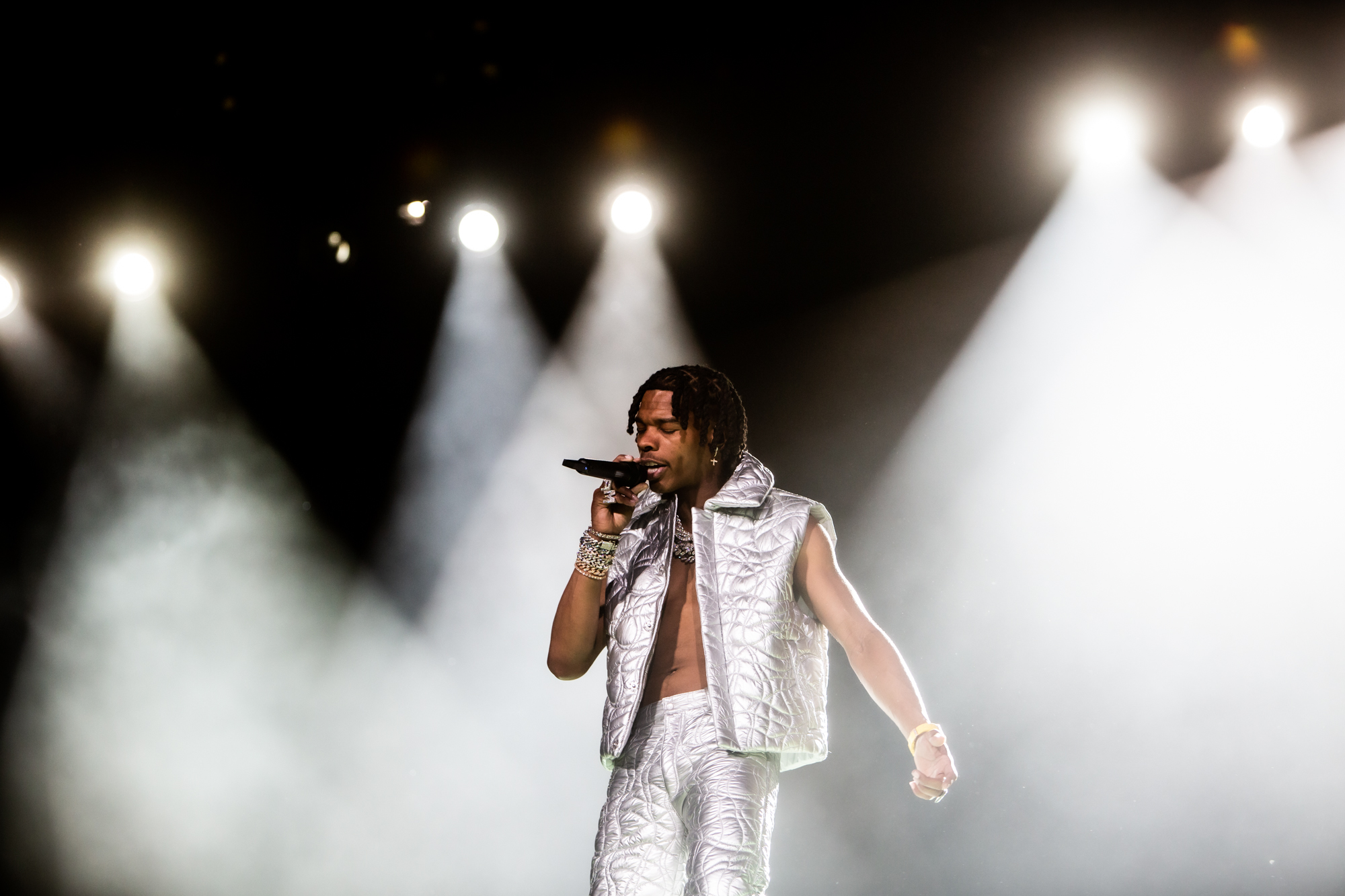
Whereas rap acts are usually spread pretty evenly around the festival grounds, this year, it appears there was a more streamlined concept. The majority of the rap acts who appeared did so on the Sahara stage; the only two exceptions were Princess Nokia and Lil Baby. Nokia was upgraded from the tiny Sonora tent to the main stage, albeit for an early afternoon set, while Lil Baby played a primetime set on the main stage that felt too early in hindsight.
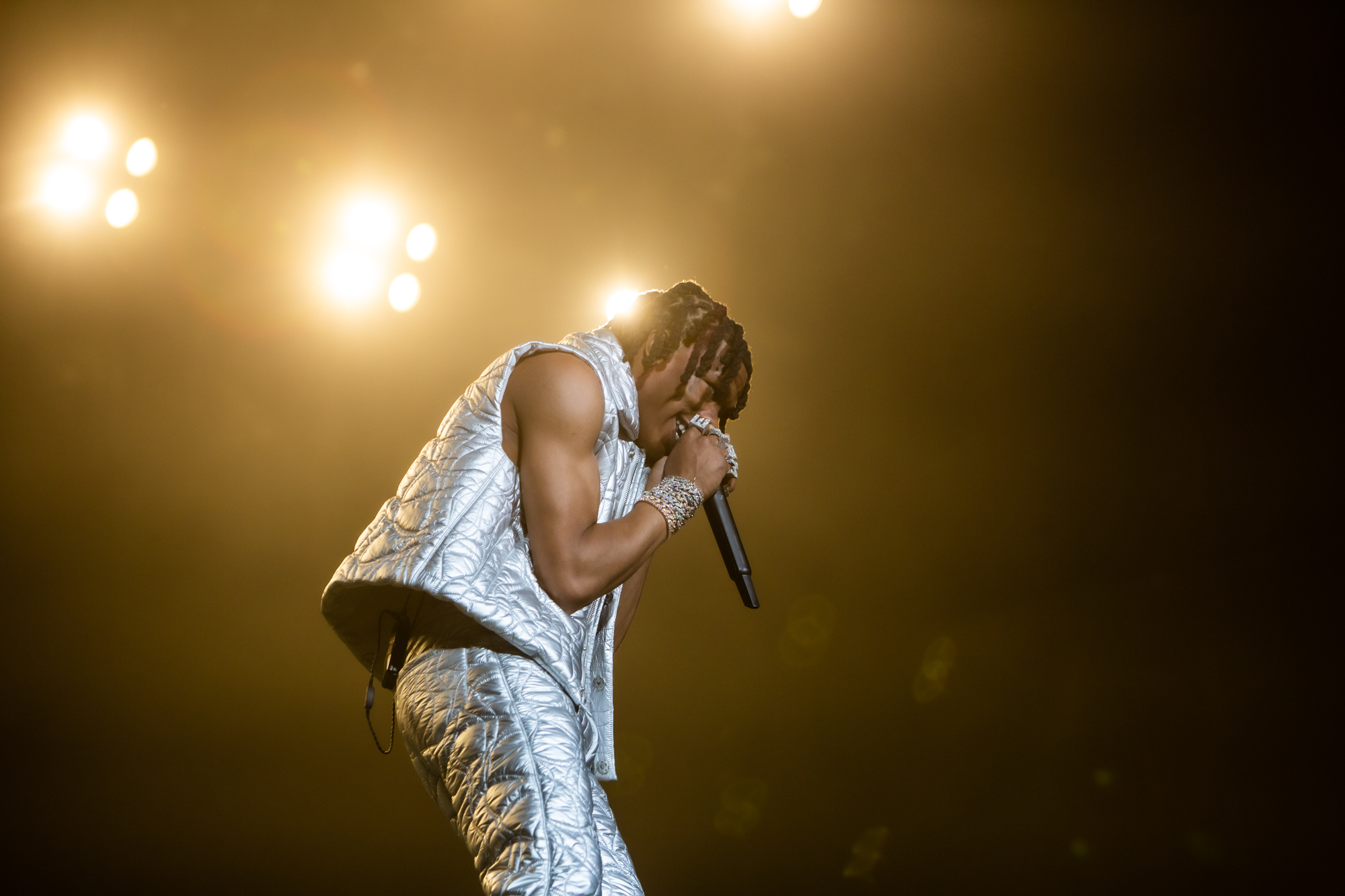
Lil Baby’s impressive set appeared to incorporate some of the lessons he’d learned during his recent Back Outside arena tour. The set design was more ambitious, depicting a busy trap house motel, and Baby’s performance was much more fluid and animated, suggesting that he’s grown in confidence and settled into himself as a showman. Though it was light on guests, Gunna did appear to perform “Drip Too Hard” and “Pushin P,” to a predictable massive crowd pop.
However, when compared to the much more low-key Daniel Caesar set that followed, it felt like Baby perhaps should have been the penultimate performer ahead of Harry Styles. The drop in energy coincided with a drop in temperatures as the desert wind picked up; I think going with the higher energy set into the headliner could have improved the reception of both.
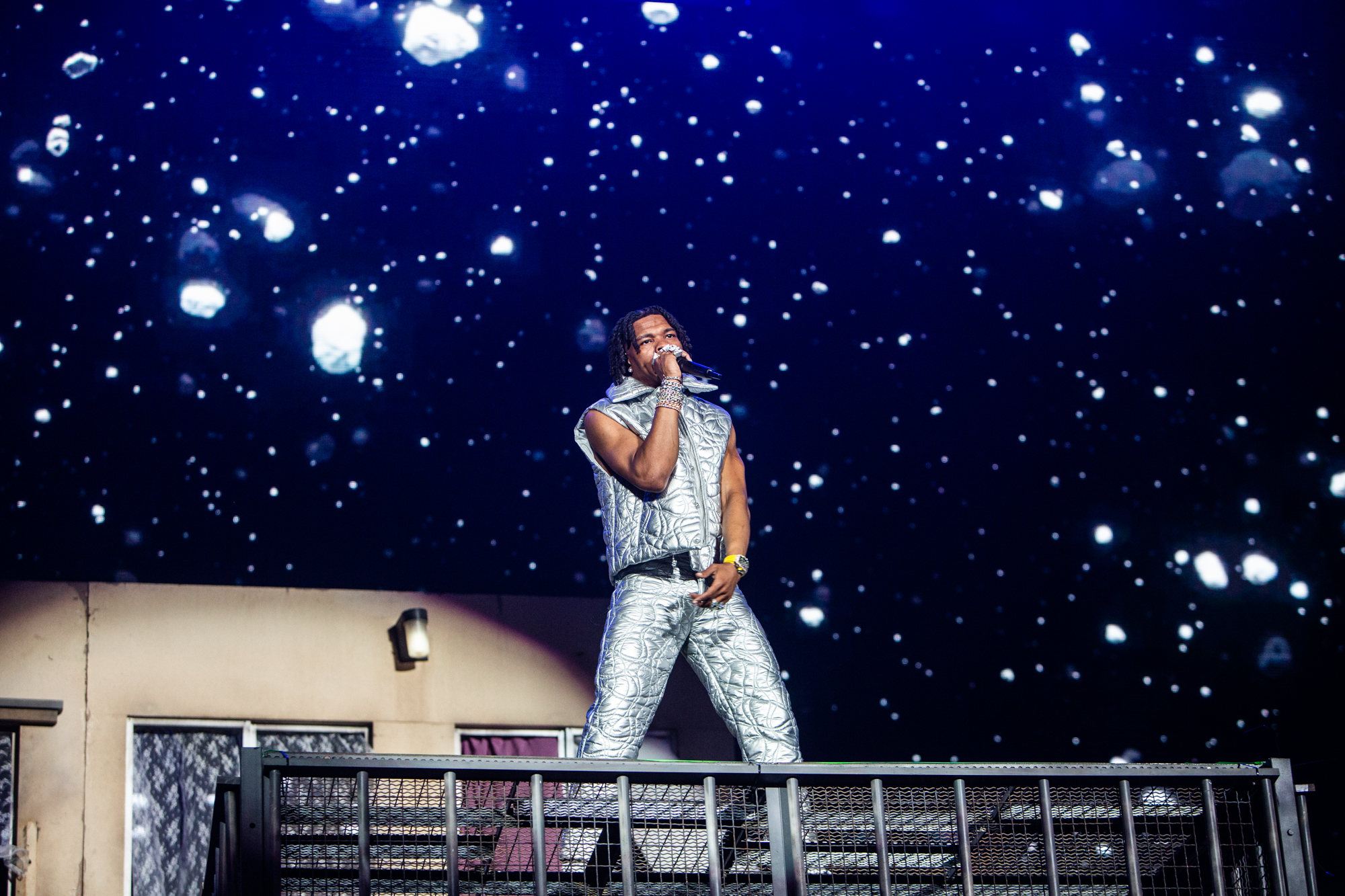
Meanwhile, on the Sahara stage, a strong lineup started with City Girls, running through Cordae, South African DJ Black Coffee, Baby Keem, and Big Sean. The only thing that seemed out of order was not starting with Cordae. His live band-backed set was as strong as any I’ve seen, but by the time he hit the stage, the exuberant crowd from City Girls had thinned considerably.
Understandably, curating a massive festival like this takes work. But it does seem that a more experienced hand could have benefitted the sequencing for the hip-hop acts to keep the energy building. Fans who enjoyed upbeat renditions of tracks like “Twerkulator” and “Said Sum” (with surprise guest Moneybagg Yo) didn’t stick around to watch Cordae perform Lost Boy staples like “Thanksgiving” and From A Bird’s Eye View cut “C Carter” — maybe they should have because Cordae’s versatility is always impressive and perhaps City Girls fans would enjoy high-energy fare like “Scottie Pippen” and “Kung-Fu.”
While I’m sure there’s at least some overlap between Cordae’s fans and those of City Girls, that part of the Venn diagram is thin enough that booking them back-to-back wound up appearing awkward – at least, until Cordae’s more hardcore fans and curious heads finally filled the Sahara tent back up.
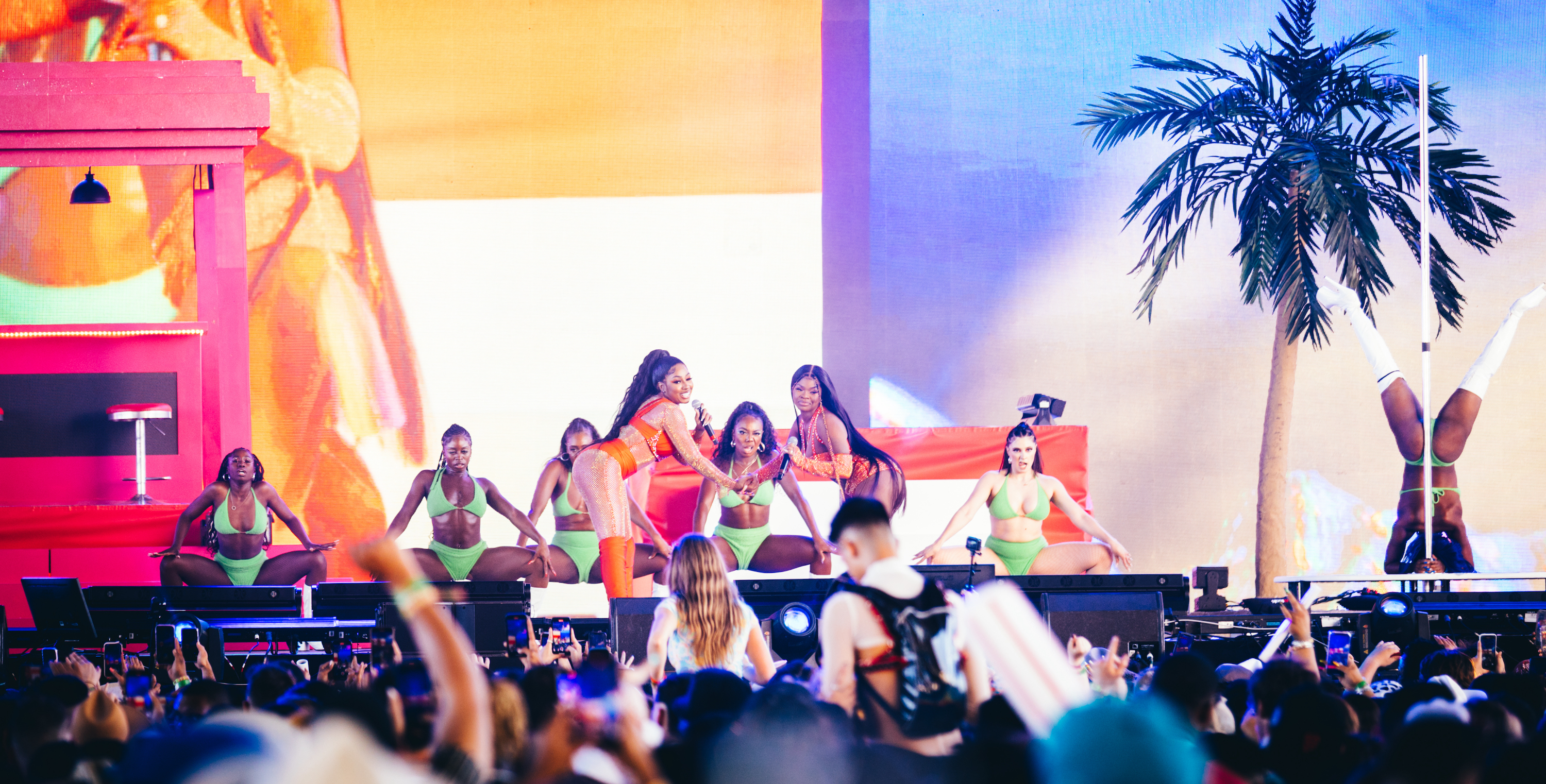
What did work well was concentrating the hip-hop acts to one or two stages and spreading them out sufficiently enough to allow someone interested mostly in seeing hip-hop to take in most of the sets. I missed Baby Keem, but only because I was so curious to see how Daniel Caesar would handle the big stage with some mellow tunes (the answer is “not well,” but not because his performance wasn’t good. It was just stuck after an electrifying performance from Lil Baby). Ideally, this could be the strategy in the future, too.
Obviously, spreading the acts more evenly between the main stage and Sahara could encourage more movement for hip-hop heads to check out other genres, while omnivores wouldn’t have to zigzag all over the polo grounds. Instead, the hip-hop acts could simply be a home base to return to at either end of the field. As long as someone in booking has a grasp of where acts are in their careers and how their respective sounds compare and complement each other, this new, streamlined strategy could make finding hip-hop at the biggest festival easier and more enjoyable than ever.
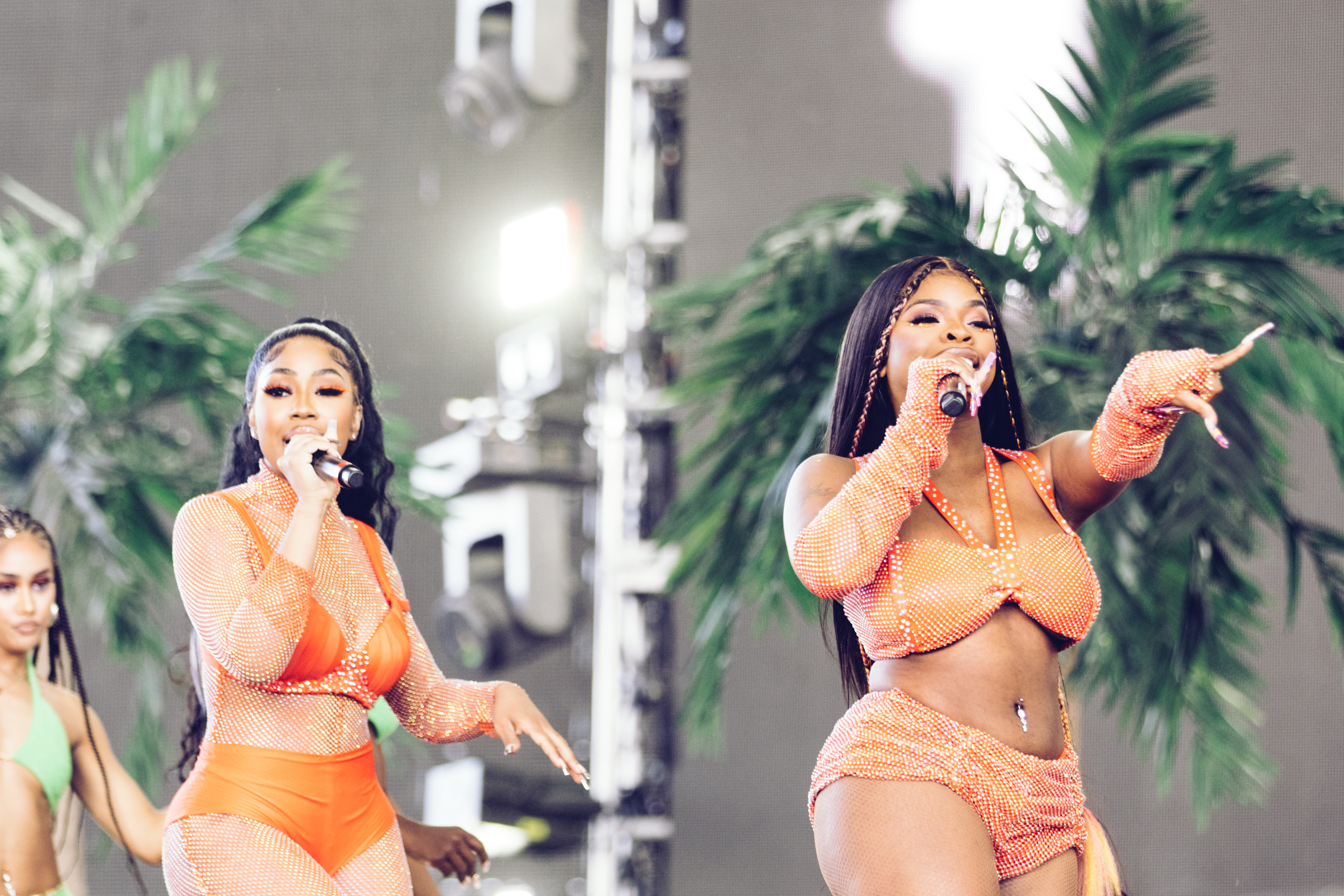
Some artists covered here are Warner Music artists. Uproxx is an independent subsidiary of Warner Music Group.
